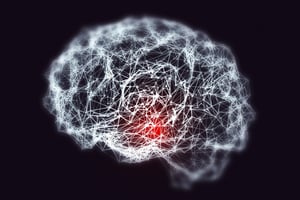
The hypothesis that's been the driving force behind Alzheimer's research...
could all be wrong.
After a string of failed major trials, scientists have started to question the mainstream belief. The currently accepted theory is the "amyloid hypothesis" suggesting that a build up of plaques, composed of a protein called beta amyloid, contributes to the degenerative aspects of the disease. This hypothesis suggests that these plaques build up and subsequently destroy neurons and then synapses. The focus centered on removing or inhibiting these plaques as a way to prevent and treat the disease.
A 2014 study examined over a decade of clinical trials for Alzheimer's medications, most targeting amyloid. Out of 413 trials the study concluded almost all had failed, with an overall failure rate of 99.6%. (Haridy, 2018)
Several major pharmaceutical companies have completely pulled out of Alzheimer's research after some high profile trial failures. Early this year, Pfizer announced it was stopping all research on Alzheimer's drugs due to the failing clinical trials.
A new body of research is emerging that is focusing on axonal transport. This new work hypothesizes that breakdowns within the transportation system are what potentially could result in the formation of amyloid plaques and this could result in more effective treatment of the disease. Shermali Gunawardena at the University of Buffalo studies axonal transport. Gunawardena and her team have been focusing on a protein called presenilin for over five years. The protein was initially found to play a prominent early role in the generation of amyloid plaques, but further research has revealed presenilin as being much more important that just regulating amyloid formation. (Haridy, 2018)
It is clear that amyloid plaques in the brain correlate with Alzheimer's disease but exactly how is still unclear.Several investigators now believe that converging environmental and genetic risk factors trigger a pathophysiologic cascade that, over decades, leads to Alzheimer pathology and dementia. It is known that high sugar intake, glucose levels and diabetes increase the risk of Alzheimer's as well.
Aluminum, high in serum and tissue storage, is implicated in the cause of Alzheimer's. Tum's, cosmetics and other medicines have high levels of aluminum.
Ozone therapy is a recognized anti-aging treatment that helps lower blood pressure and gets more oxygen to the brain.
We recognize elevated heavy metals that cross the blood brain barrier as risk factors for Alzheimer disease. We test and treat heavy metal toxicity with I.V. ozone chelation therapy. It's safe, effective, advanced treatment that prevents further damage.
Dirty Genes and the Risk of Alzheimer's
Haridy, R. (2018, June 08). What if our current hypothesis for the cause of Alzheimer's disease is all wrong? Retrieved from https://newatlas.com/amyloid-hypothesis-alzheimers-debate-presenilin/54952/


